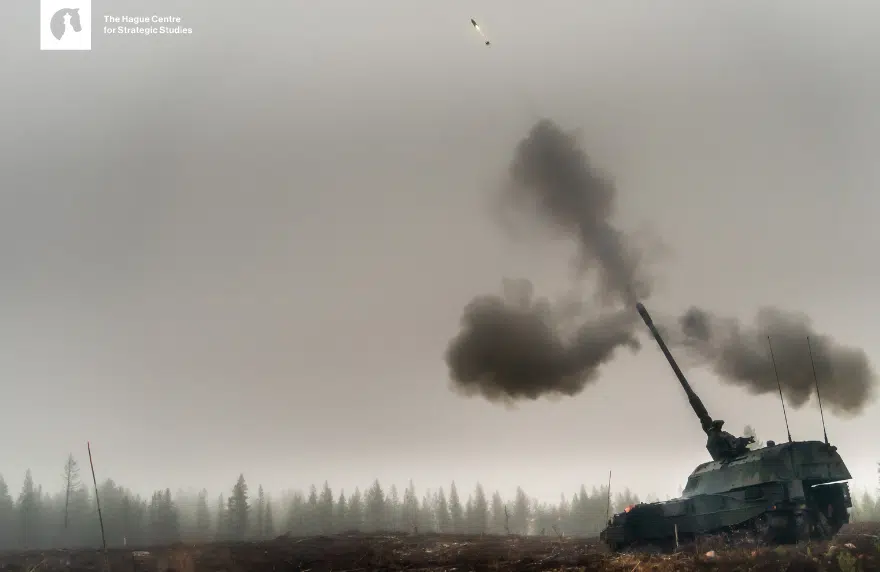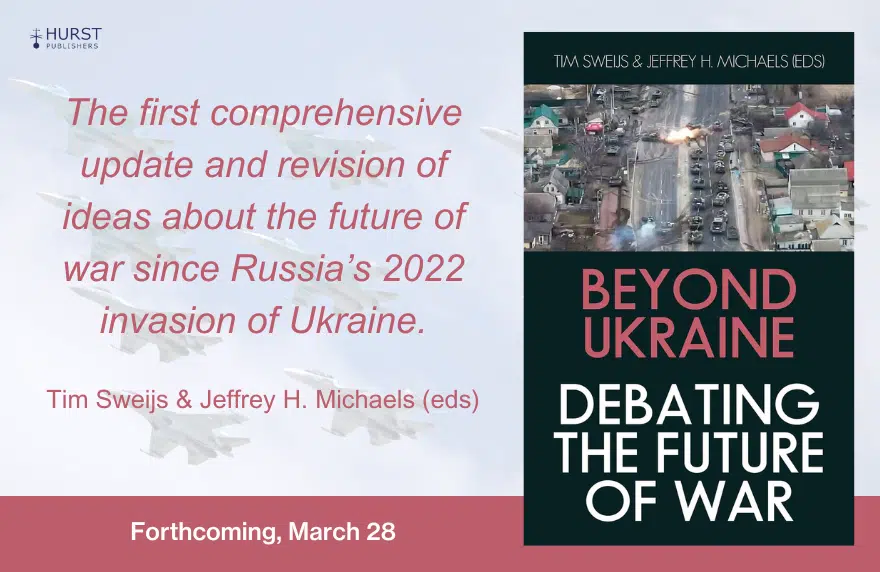What preliminary lessons can we learn after one year of war in Ukraine? After the Russian invasion of neighbouring Ukraine, a large-scale and even nuclear war in Europe is no longer unthinkable. European armed forces are not equipped for a war in the highest spectrum of violence, and American support is still necessary for the defence of European territory.
HCSS has focused on land combat in this first analysis. Of course the Ukraine war has many dimensions: there is fierce fighting on land, at sea and in the air, while cyberspace, the electromagnetic domain, information warfare and space also play a vital role. But the war in Ukraine is mainly about defending, conquering and retaking territory in which the Russian and Ukrainian armies play the main role and all the other means of power of the Russian and Ukrainian state are the main task to support this decisive battle. HCSS made an analysis of the preliminary lessons for land operations that can be drawn from this.
Key observations from this study:
- Understanding the opponent is fundamental. Not only must we understand our adversary, but our adversary must also understand us. After all, deterrence is not possible if we do not understand each other’s signals. For Western countries, the Russian attack came as a surprise despite months of Russian preparation. Russia, for its part, underestimated the West’s strong response to the attack.
- The war has a heavy land component. Mechanized infantry, tanks and artillery are essential here, both to defend terrain and to (re)conquer terrain.
- Unmanned aerial systems (also known as drones) have an important operational value as a multi-level reconnaissance tool. The integration of observation and intelligence assets, directly linked to target assignment and fire control and supported by secure satellite communications, is crucial to be decisive on the ground.
- Not visible to the naked eye, but no less important, are cyber and electromagnetic warfare in support of operations in other domains. Disrupting radio traffic between units, radar, air defence, data communications, internet, GPS and drone control has enormous impact on the battlefield.
- Sustainability is a critical precondition for military success. The consumption of equipment and ammunition and the losses of manpower are enormous. To sustain a war, large reserves are necessary and losses must be constantly replenished.
- Adaptability is the key to military success. The Ukrainian armed forces have very short and fast learning cycles. But Russia is also learning from its many mistakes and the Russian armed forces are adapting their actions.
- The war between Russia and Ukraine can end in different ways. In almost any scenario, Russia will remain a formidable military adversary and a major military threat to European security for the next 10-15 years. The Russian armed forces have combat experience, learn from their failures, and adapt.
The war in Ukraine is not the only template for future wars. After all, war is a many-headed monster. But the combination of threat and impact of this type of large-scale conventional war requires preparation for a worst-case scenario.
While the US focus is shifting to the Indo-Pacific, European countries are embarking on a period of rearmament and reconstruction of their armed forces. It is advisable that they draw on insights into strategy, organization and command, technology and platforms, methods of action, and training and education, based on an analysis of this terrible war on the European continent.
Authors: Frederik Mertens, Björn de Heer, with contributions from Tim Sweijs, Paul van Hooft and Frank Bekkers.
Find the Dutch version of the paper here:
Cover photo source: Een Pantserhouwitser in actie, Ministerie van Defensie











